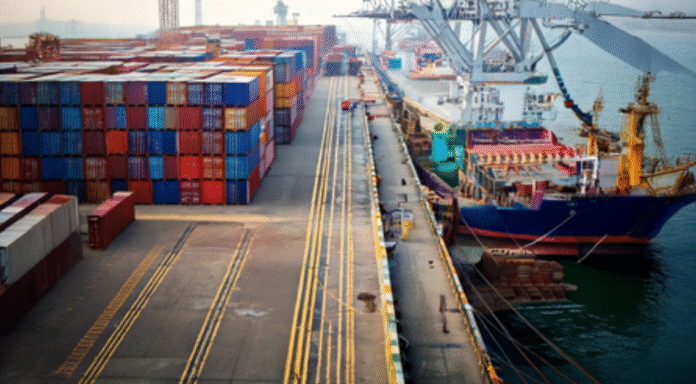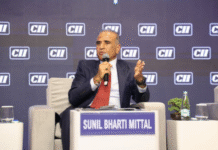New Delhi— India is on track to achieve $1 trillion in total exports by the end of fiscal year 2025–26, according to projections released Tuesday by the Federation of Indian Export Organisations (FIEO).
The forecast includes $525–535 billion in merchandise exports—representing an estimated 12 percent year-on-year growth—and $465–475 billion in services exports, which would mark a nearly 20 percent increase.
In FY 2024–25, India set a new export record, reaching $824.9 billion in combined goods and services exports—a 6.01 percent rise from $778.1 billion in the previous fiscal year. Services exports played a major role, growing 13.6 percent to $387.5 billion, driven by strong performance in IT, business, financial, and travel services. Merchandise exports reached $437.4 billion, with non-petroleum goods exports hitting a record $374.1 billion—up 6 percent year-over-year.
FIEO President S.C. Ralhan emphasized the importance of maintaining this momentum through strategic diversification and policy reforms. “Expanding into emerging markets and deepening relationships with existing trade partners will help mitigate risks tied to regional overdependence,” he said. He also recommended focusing on value-added exports instead of raw materials to increase earnings and reduce exposure to global commodity price swings.
Ralhan highlighted the need for faster negotiation and implementation of Free Trade Agreements (FTAs), as well as investments in infrastructure, lower logistics costs, and strict adherence to global quality standards to make Indian exports more competitive.
The FIEO also stressed the importance of empowering small and medium enterprises (SMEs) with better access to finance, technology, and market data to enhance their participation in global trade.
Looking ahead to 2025, FIEO warned that a growing wave of protectionism is reshaping global trade. Rising tariffs, non-tariff barriers (NTBs), and strategic trade restrictions are creating new challenges for exporters worldwide.
To stay competitive, Indian exporters must meet rising demands for supply chain transparency, particularly in traditional sectors like textiles, leather, and electronics, where traceability is currently lacking.
“We urge the government to establish sector-specific task forces to evaluate Due Diligence Product Passport (DPP) requirements and design clear compliance roadmaps,” Ralhan said. He also called for the creation of a national digital infrastructure to help exporters meet DPP standards, along with grants and support to help MSMEs implement traceability and product lifecycle systems. (Source: IANS)







